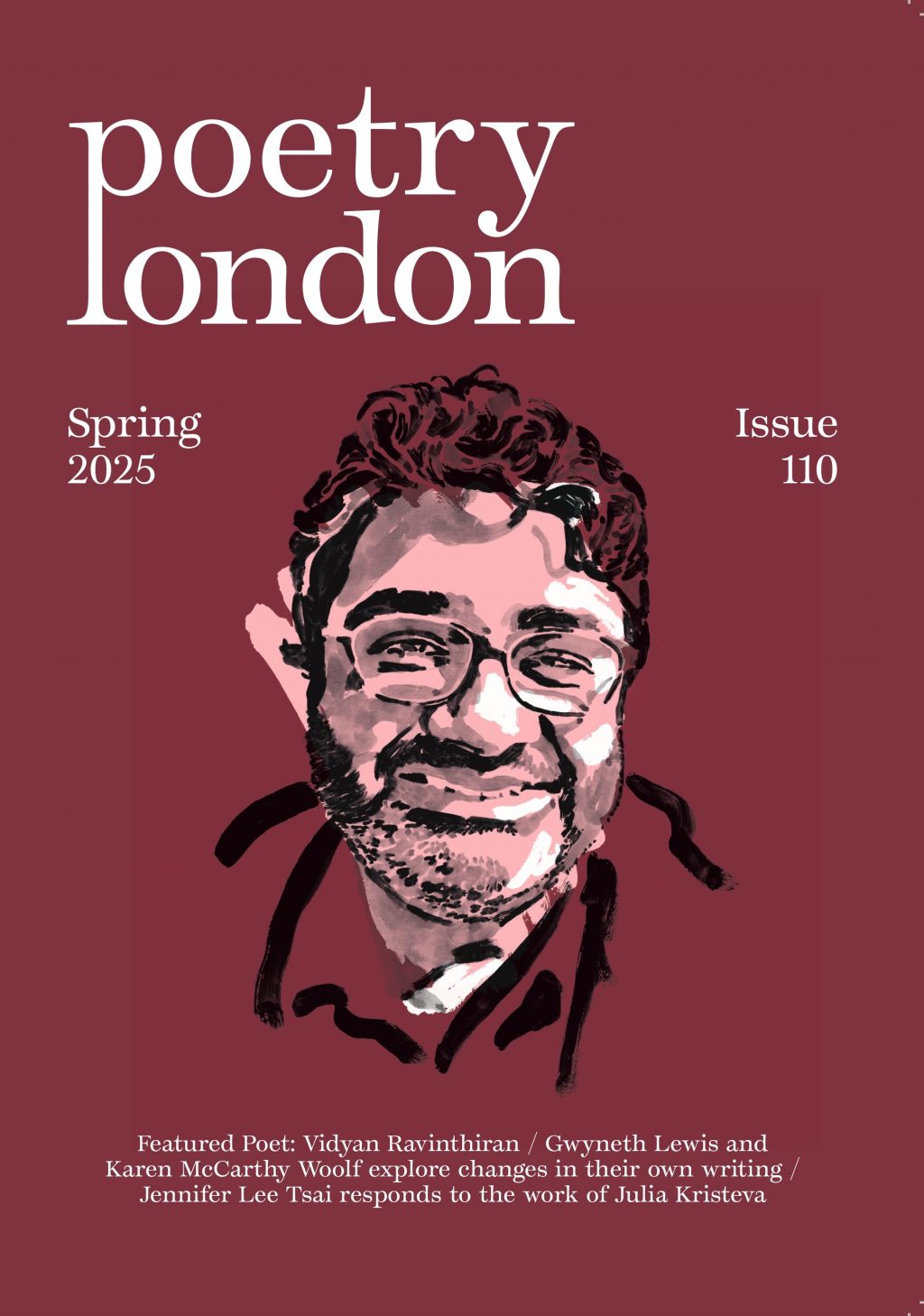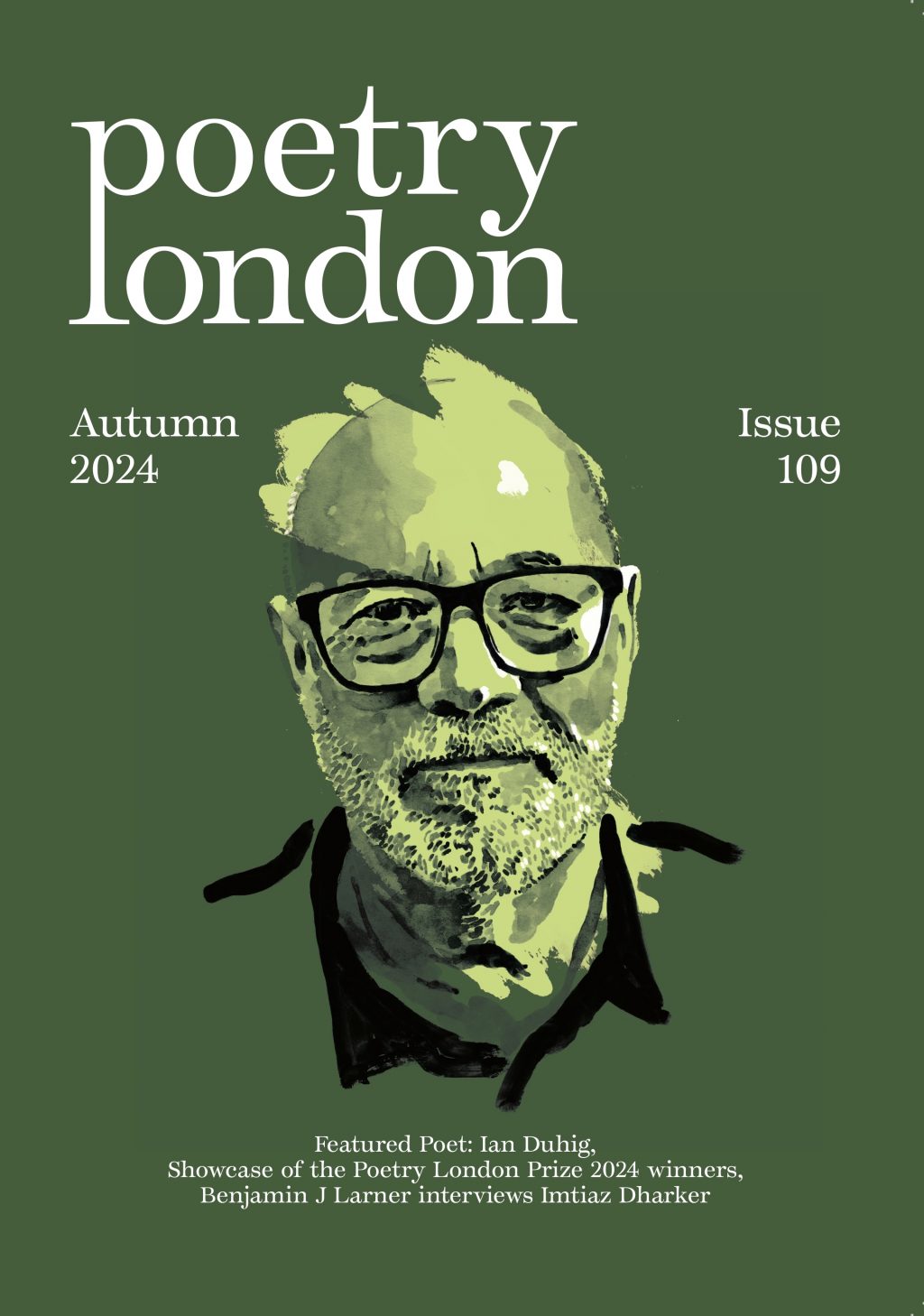Poetry in the Age of Zoom
Zoë Brigley reports on the possibilities and challenges of new technologies
Talking to the Paris Review in 1982, Philip Larkin tells of his deep disdain for poetry readings, claiming that they ruin the personal relationship with a poem: ‘hearing it means you’re dragged along at the speaker’s own rate, missing things, not taking it in, confusing “there” and “their” and things like that.’ Whatever we might think about poetry readings, the current moment has forced us to rethink how we present poetry when we cannot perform in person.
Terrible as the pandemic is, a silver lining is the trend of online poetry events, which have largely been free, providing new accessibility to people who cannot usually attend, for example people with disabilities, elders, those on low-income, and parents. To make events accessible is not only positive but essential, as campaigners for the rights of disabled people have been saying for years. Take the 2018 report by VIDA and Deaf and Disabled Uprising on ableism at the AWP Conference in the US, while writers like Khairani Barokka, Karrie Higgins, and Jillian Weise (among many others) have spoken out about this issue in the broader writing community. (One point that organisers of online poetry readings need to consider is negotiating accessibility needs like captioning, signing, or providing copies of poems for those who may have challenges accessing the reading.)
Besides the discussion of ethical need, the possibilities are marvellous when writers from across the world can be brought together online. At the Cúirt International Festival of Literature, ‘Mothertongues’ brought together Ifor ap Glyn, Padraig MacAoidh and Cíara Ní É, three poets writing in Welsh, Scottish Gaelic, and Irish Gaelic, in dialogue about minority languages. For ‘The Hexing Circle’, a reading that I organised to gather strength before the presidential election, seven women poets read from the US and UK. At a powerful Edinburgh International Book Festival reading, Mojave poet Natalie Diaz read alongside Australian indigenous poet Ellen van Neerven, and Silver Press’s ‘Poetry is Not a Luxury: The Poetics of Abolition’ saw the British poet Nat Raha reading alongside abolitionist writers from the other side of the Atlantic, Saidiya Hartman, Canisia Lubrin, and Christina Sharpe. In fact, the political ramifications of the pandemic have seen many poets presenting events for causes, such as Zena Edwards’s talk and reading for the environmental charity Season for Change, on ‘Tackling Climate Change and Building an Inclusive Movement’. There are great possibilities for creating connections and raising consciousness about important issues like Black Lives Matter and the climate crisis.
But online readings can be odd at first. On Zoom or its equivalent, participants are cropped heads and shoulders in their tiny boxes, the face ghostly, reduced to a cartoonish version of the self. Roland Barthes described Greta Garbo’s face transformed on film to ’something sharper than a mask’, possessed of a kind of ‘plastic’ beauty, a description that comes to mind when we see the pixelated simulacra of the Zoom wall. And how much intimacy can there be with the face talking back to us, blurry as ectoplasm, and sticking from time to time in looped internet glitches?
The other problem is the exposed faces of the audience. Watching an in-person reading, we would probably become completely absorbed, and unless sat in the front row, we would not be conscious of our own faces. Online, though, we enter the panopticon: beware resting bitch face! It’s no wonder that many people in poetry audiences turn their cameras off, which can be disconcerting for the poets reading.
But at the same time, after so long being in lockdown, there is the absolute joy of seeing poets, writers, and colleagues I know and love on Zoom when they are reading or even just attending events. Even if their camera is off and I just see their names, I get excited. It’s the equivalent of that feeling when you are attending a large and anonymous writing convention and you suddenly see someone you know – this feeling is also why there is so much hugging at AWP. And this is not even mentioning the pleasures of Zoom’s private chat function with other attendees, though there is always the hazard of accidentally messaging everyone. The fact is that you can create community; you can foster camaraderie, friendship, and solidarity even on Zoom.
The best online poetry events feel intimate, personal, and moving, even innovative and imaginative. Terrance Hayes gave a formidable reading with Mona Arshi for the John Hewitt Digital Literary Festival based in Ireland, where he presented ekphrastic poems alongside works that inspired them. For a University of York event, Vahni Capildeo and Mary Jean Chan riffed on the theme of swords using video and wordplay to create an enriching event, and Caroline Bergvall’s ‘Night & Refuge’ saw Capildeo, Will Harris, Leo Boix and Nisha Ramayya bravely writing live onscreen.
Another successful format can be found in long events with a rolling schedule of short readings. The American magazine About Place held some successful launches in this mode, featuring up to twenty poets reading on environmental themes, some presenting videos and images. Poetry Wales’s online launches also take this format: editor Jonathan Edwards has a laidback and warm style, chatting with readers in a disarming way. This same welcoming feeling is found in Jack Underwood’s poetry series on Instagram Live, Serge Neptune’s ‘Glitter House for Wayward Poets’, Seren’s ‘First Thursday’ readings, ‘Live from the Butchery’ organised by Helen Ivory and Martin Figura, Colin Herd’s reading series through University of Glasgow, as well as the launches for Birmingham Poetry Literary Journal, where the editors Naush Sabah and Suna Afshan begin the reading like a dance party. This approach is nurturing and helpful given the isolation many people feel under the current conditions of the pandemic.
One event organiser to watch is Ignota Books, which has created a strong and imaginative space for events, fostering a sense of spectacle and performance. At the birthday celebration of the anthology Spells, Hoa Nguyen gave a tarot reading, Bhanu Kapil’s reading was a piece of performance art, and Nisha Ramayya appeared in body paint with a vicious-looking dinosaur head encroaching onscreen. I was also very moved by ‘Ignota Hosts’ last July, which featured a blazing introduction by So Mayer, shattering and powerful readings by Ariana Reines, Eileen Miles and Fanny Howe, as well as music by Lumpland and Yva Las Vegas. There’s a strong sense of inclusion and togetherness in these events which is powerful, validating, and healing.
I can’t help thinking that Larkin would have hated online poetry readings, and it isn’t clear whether online events can be sustainable given that there is a large expectation that they should be free. How long can festivals manage to provide this? Does this mean creating a different model for how writers and arts organisations fund their work?
It seems unlikely that poetry events will go back to being completely in-person, and of course that is positive for accessibility but there is more too. Personally, I don’t know how I would have got through this pandemic without poetry, and part of that nourishment has been the delight, the wonder of seeing poets read from far beyond my geographical limits. If Zoom can communicate poetry to audiences beyond writers’ immediate circles, why wouldn’t we take advantage of that? While I was talking to Philip Gross in the interval of an online launch for Poetry Wales, he told me that he was absolutely adamant that we should never go back, and that the change has been nourishing and inclusive. There is so much imagination and ethical care being taken over these online events, and it is a trend to be embraced rather than sidelined when we finally reach the end of this crisis.
Zoë Brigley’s most recent publications are PBS Poetry Recommendation Hand & Skull (Bloodaxe 2019), the nonfiction essays Notes from a Swing State (Parthian 2018) and a chapbook from Broken Sleep, Aubade After A French Movie (2020). She is Assistant Professor at the Ohio State University and has another poetry chapbook forthcoming in 2021, Into Eros from Verve Press.


